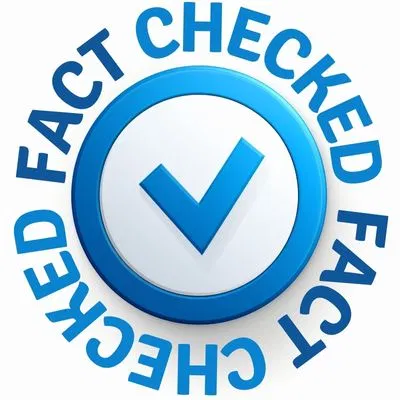SEO Tracking 101: Top SEO Metrics You Should Be Tracking In 2025
Published July 28, 2025
In 2025, online visibility is more competitive than ever. Ignoring SEO tracking can hurt your marketing efforts. Search engine optimization (SEO) serves as the backbone of any successful strategy. But without tracking the right metrics, you won’t know if your efforts are working. By focusing on key performance indicators (KPIs), you can measure success and fine-tune your strategy to stay ahead of the competition.
In this article, we’ll explore the essential metrics, how to track SEO rankings, tools to use, and practical tips to optimize performance.
Why SEO Tracking Matters In 2025
The world of SEO has evolved dramatically in recent years. Search engines are smarter, user expectations are higher, and the competition is fiercer than ever. Monitoring SEO metrics is essential to staying ahead. Here’s why:
- Stay ahead of algorithm changes: Tracking your SEO performance ensures you’re prepared for updates and aware of how they affect your site.
- Gain insights into user behavior: Bounce rate, organic traffic, and dwell time show how visitors interact with your site.
- Make smarter, data-driven decisions: Clear insights help you optimize content, refine keywords, and improve the functionality.
In 2025, effective SEO tracking isn’t just helpful—it’s critical to success.
The Changing Landscape Of SEO In Digital Marketing
SEO has evolved far beyond simply aiming for the top spot on Google. Today, it integrates elements like user experience, mobile optimization, and brand credibility. Marketers must take a holistic approach to track key metrics and drive sustained growth in the ever-changing digital space.
Why Tracking SEO Metrics Leads To Smarter Decisions
Informed decisions rely on precise, actionable data. Tracking metrics like organic traffic and keyword rankings shows what works. It also highlights areas to improve. A low click-through rate (CTR)? Updating title tags and meta descriptions can boost performance.
Avoid These Common Performance Mistakes
- Chasing vanity metrics: Metrics like domain authority can be helpful. However, they don’t offer actionable insights on their own.
- Ignoring context: Viewing metrics in isolation can lead to misinterpretation. For example, a drop in traffic might simply reflect seasonal trends.
- Using outdated tools: Using outdated tools or manual tracking holds you back. It makes accessing and analyzing valuable data harder.
By avoiding these pitfalls, marketers can unlock SEO’s true potential. Focus on meaningful metrics to drive better results.
Core SEO Metrics To Monitor For Success
Achieving SEO success starts with monitoring the right metrics. Here’s a look at the key SEO metrics to monitor and optimize for better results.
Organic Traffic
Organic traffic measures the visitors who discover your site via search engine results, without paid ads. Tools like Google Analytics 4 (GA4) and Google Search Console provide detailed insights. They help you track traffic sources and measure your SEO success.
Pro Tip: Compare branded and non-branded traffic. See how well you’re attracting new audiences. Measure your reach and growth.
Conversion Rate From Organic Traffic
The ultimate objective of SEO is to generate revenue or leads. Measure success by tracking how many organic visitors complete key actions. These could include purchases or newsletter sign-ups. Use conversion tracking in GA4 or other tools. This will provide insights to refine your strategy and boost results.
Keyword Rankings
Tracking your target keywords’ rankings in SERPs is key to a strong SEO strategy. Tools like SEMrush, Ahrefs, and Moz offer real-time keyword insights. They help you find opportunities to improve your performance.
For example, if a top keyword drops to page two, take action. Add internal links or update its on-page SEO to boost performance.
Click-Through Rate (CTR)
CTR highlights the percentage of users who click on your website after it appears in search results. Improving your CTR can drive more traffic and boost visibility. Here’s how:
- Create engaging, keyword-rich title tags and meta descriptions.
- Implement schema markup to enable rich snippets that grab attention.
- Use tools like Google Search Console to monitor CTR trends and identify pages that need optimization.
Bounce Rate And Dwell Time
Bounce rate is the percentage of visitors who leave after viewing one page. Dwell time measures how long they stay and engage with your content. High bounce rates or short dwell times often indicate a subpar user experience or content that doesn’t align with user intent. To improve these metrics:
- Enhance page load speed for a seamless experience.
- Ensure your content stays relevant and tackles the needs of your audience.
Core Web Vitals (Page Speed, Mobile Usability)
Core Web Vitals measure your website’s technical performance. They track metrics like loading speed, interactivity, and visual stability. To optimize your site, tools like PageSpeed Insights and Web.dev can help you ensure:
- Your website is optimized for mobile devices.
- Pages load in 2 seconds or less for a seamless user experience.
Backlink Profile And Referring Domains
A solid backlink profile is a critical factor in augmenting domain authority and search engine rankings. Use tools like Ahrefs or Moz to identify your top referring domains, monitor new backlinks, and evaluate the quality of inbound links. Prioritize building links from reputable websites with high domain authority to maximize impact.
Indexed Pages And Crawl Errors
A page that Google doesn’t index can’t rank in search results. Utilize Google Search Console to track crawl errors and indexing issues. Fix broken links or misconfigured robots.txt files quickly. Resolving these issues can boost your website’s performance.
Pages Per Session
This metric indicates the average number of pages a user views during a single session. Boosting engagement across multiple pages can significantly enhance conversions. To achieve this, focus on interlinking related content and streamlining site navigation for a seamless user experience.
Essential Tools For SEO Tracking And Analysis
- Google Search Console and Google Analytics 4. These two tools are foundational for effective SEO monitoring. Google Search Console tracks keywords and finds technical issues. Google Analytics 4 (GA4) offers insights into user behavior and traffic sources. Together, they give a complete view of your site’s performance.
- Third-Party SEO Tools (SEMrush, Ahrefs, Moz). Platforms like SEMrush, Ahrefs, and Moz offer powerful features that go beyond the basics. These tools provide keyword research and backlink analysis. They also offer competitor insights. Use them to refine your SEO strategy with precision.
- Real-Time Insights with Custom Dashboards. Simplify your SEO tracking with custom dashboards in Google Looker Studio (formerly Data Studio). These dashboards bring key metrics together in one place. Get real-time performance insights at a glance.
Setting SEO Goals and Benchmarks
Clear SEO goals are essential for measurable success. Align key metrics with business objectives, assess benchmarks, and monitor progress to create a strategy that drives growth. Here’s how to begin:
Aligning SEO KPIs With Business Goals
To drive results, tie your SEO KPIs to your business goals. Metrics like organic traffic and conversions should align with broader objectives. Whether it’s boosting revenue or building brand awareness, this alignment keeps your strategy focused and effective.
Evaluating Industry Benchmarks
Benchmarking is key to understanding where you stand. Compare your performance to industry standards. In some sectors, a 2% CTR might be enough. In others, success may require 6% or higher.
Balancing Monthly And Quarterly Tracking
Adopt a dual-layer tracking strategy:
- Monthly reviews help identify short-term trends and immediate adjustments.
- Quarterly analysis gives a broader perspective. It helps you assess ROI and refine your long-term strategy.
Having trouble linking your SEO strategy to real business growth? Correct Digital creates tailored SEO campaigns designed to align perfectly with your goals—powered by data, driven by results.
Frequently Asked Questions
How often should I monitor my SEO metrics?
The monitoring frequency will vary based on the specific metric being assessed. For example, tracking keywords might require weekly reviews, whereas conducting in-depth technical audits can be done quarterly.
What’s the difference between keyword rankings and organic traffic?
Keyword rankings show your website’s position in search results. Organic traffic tracks how many visitors come through those rankings.
What are the best tools to use to measure SEO data accurately?
Highly reliable tools include Google Search Console, Ahrefs, and SEMrush. Each offers unique features tailored to different SEO needs.
How can I tell if my SEO strategy is effective?
Assess key indicators such as growth in organic traffic, higher keyword rankings, and an increase in conversion rates. These metrics reveal the success of your strategy.
Master SEO Tracking: The Key To Long-Term Digital Success
In 2025, success in SEO goes beyond simply following best practices—it demands a strategic, data-driven approach. SEO tracking is essential to monitor the right metrics, make smarter decisions, and drive results. Use these tools and strategies to refine your efforts and position your website for lasting success. Start implementing these insights today and watch your rankings soar!
Ready to transform SEO data into measurable growth? Partner with Correct Digital today. With advanced tools and expert strategies, they’re ready to elevate your online presence. Whether improving existing SEO or starting fresh, their team is here to help you succeed in 2025 and beyond.
Hire The Digital Marketing Experts
We take online businesses and turn them into online empires by employing smart digital marketing strategies. Our team of experts are trained in a myriad of marketing skill including SEO to help you rank higher in search results, and ad management to ensure your message gets seen by the people you want. Need a business website that attracts business? We also specialize in website design and online sales optimization to help your business grow like never before.

This Content Has Been Reviewed For Accuracy By Experts
Our internal team of experts has fact-checked this content. Learn more about the editorial standard for our website here.

About The Author
Rei Bayucca has a wealth of knowledge and experience as a professional writer for multiple industries. It is her mission to ensure that her readers receive high-quality, informative content that is both entertaining and educational. Through her writing, Rei aims to educate and motivate readers.



